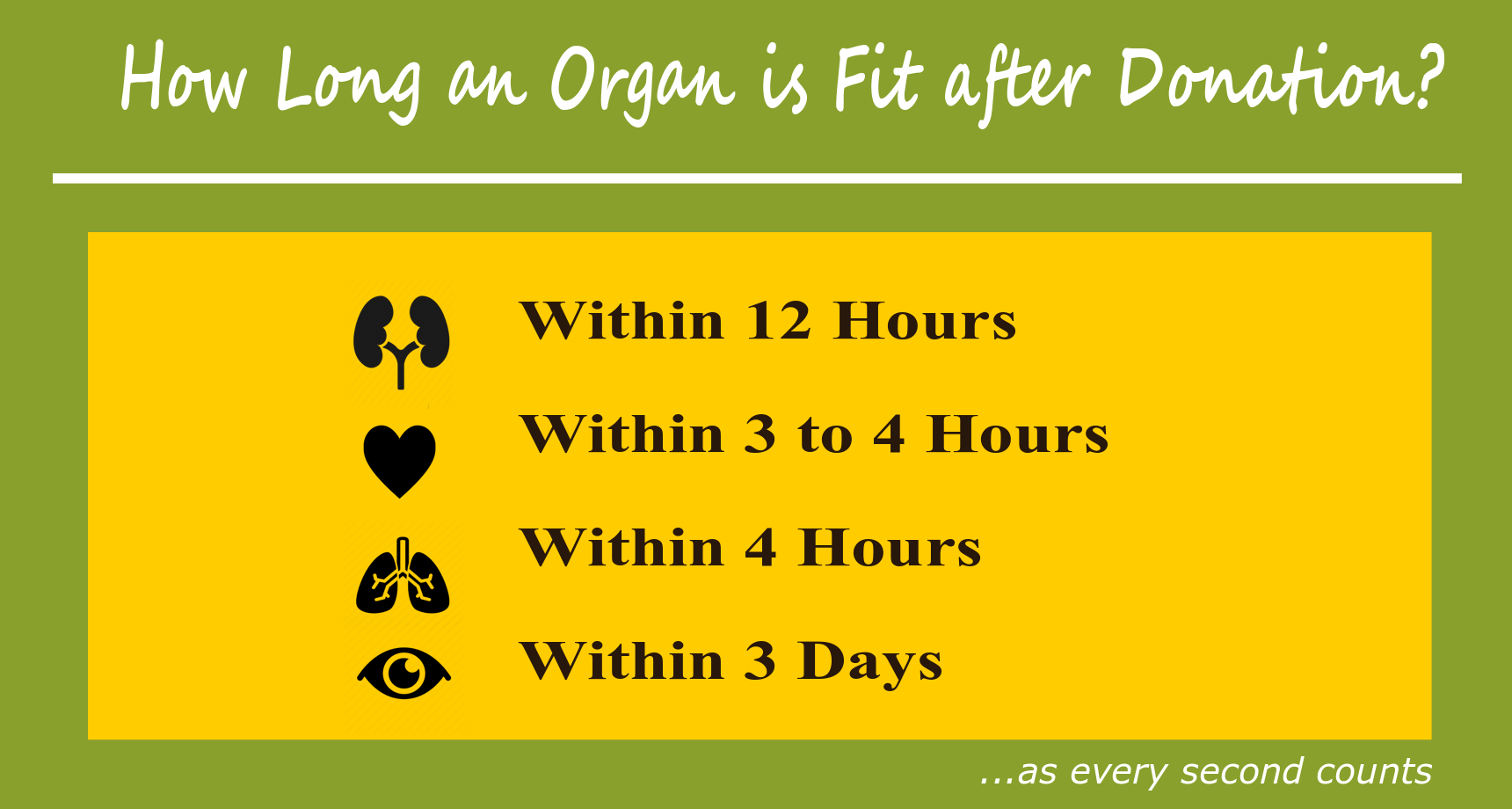Most Sacred Donation is Organ Donation – One can Live after Death
Table of Contents
Recently, a news report flashed on a national channel highlighting a remarkable incident where a green door was created to expedite the transfer of a heart from one hospital to another. This exceptional coordination allowed the transportation to cover a distance that would normally take hours in just a few minutes. The hospital and traffic staff worked seamlessly together, recognizing the criticality of every single second in ensuring the viability of the organ for transplantation. This incident served as an eye-opener for me, as I had not been fully aware of the intricacies of organ donation processes, the associated laws, or the life expectancy of different body parts after donation.
This incident made me see my own body in a new light. It sparked a realization of the fragility and preciousness of life, and the incredible impact that organ transplantation can have in saving and enhancing the lives of others. It made me reflect on the remarkable collaboration and dedication of healthcare professionals, traffic personnel, and all those involved in ensuring the successful transfer of organs for transplantation. Their understanding of the urgency and the value of every passing moment emphasized the significance of organ donation and the need for efficient systems and processes in place to support it.
Importance of Organ Donation
Who says life can not remain a “life” after death. It is possible with organ donation now. This is one of the most sacred donation one can do in the whole life. If everyone takes a pledge to donate his vital body part after death, there are many lives in the world which can bloom again.
There are many sisters, brothers, mothers and fathers who lose their battle of life in the wait of organ transplantation. There are many people who are brain dead and have least life left. If their heart or kidney can be used for those who need them the most and struggling for life, nothing could be better than this.
There are many organs in human body which can be exchanged on the event of their failure. In such scenario, they can be transplanted from the body of a healthy person. But organ transplantation can happen only when someone is ready for this.
To donate own’s organ to someone needy, is called “Organ Donation”
What happens during Organ Donation?
- Organ donation is typically performed after a person has died or been declared brain dead. In cases of brain death, the patient is typically on a ventilator. Doctors ensure that the patient meets the criteria for brain death and has minimal life expectancy.
- To determine brain death, doctors conduct an Electroencephalography (EEG) test. This test is performed to assess brain activity and is usually conducted multiple times to ensure there is no possibility of brain function.
- There are specific laws and protocols that hospitals must follow regarding organ donation. Family members are involved in the decision-making process, and their consent is obtained before any organ retrieval takes place.
- It is crucial to retrieve and store the organs as soon as possible. The efficiency of organ function decreases over time, so prompt action is necessary.
- Hospitals maintain waiting lists of patients in need of organs. When an organ becomes available, it is offered to the patient at the top of the waiting list. The entire process is conducted with utmost efficiency to ensure that the organ reaches the recipient as quickly as possible.
- If the organ is not a match for the first patient on the list, it is offered to the next patient in line, following a fair and prioritized approach.
Organ donation is a complex and regulated procedure that involves the coordination of medical professionals, legal frameworks, and the consent and cooperation of the patient’s family. The ultimate goal is to maximize the chances of successful transplantation and provide a renewed lease on life for those in need.
What is the Life Expectancy of Organ after Donation?
If a person is alive, his kidney or liver can be transplanted with his permission. But if a patient is brain dead, it is done immediately. The organ begins to deteriorate with every single passing second. Different organs have different life expectancy as bellow:
Legal Provisions for Organ Donation
- Consent: Any individual can sign a contract before their death to donate their organs. However, if their close family members do not give permission for organ donation, the hospital cannot proceed with the process. The hospital only proceeds with organ donation if the family is willing.
- Family Consent: Even if a person has not signed an organ donation contract, their family can still opt for organ donation after their death if they give consent.
- Brain Death: If a person is declared brain dead, their organs can be considered for transplantation.
- Timing: The process of organ transplantation can begin immediately following the patient’s death. This does not cause delays in the last rituals and funeral processes, contrary to common misconceptions.
- Age Requirement: To become an organ donor, one must be above the age of 18. If the potential donor is below 18, the permission of the parents or legal guardians is mandatory.
- Specific Organ Donation: Only the organs mentioned in the organ donation card can be transplanted. If the family objects to the donation of certain organs, the hospital must respect their wishes.
- Financial Responsibility: The family does not bear any expenses related to organ donation. The costs are typically covered by the recipient or the healthcare system.
- Permission for Organ Retrieval: No hospital or individual can remove any part of a person without their explicit permission.
These legal provisions ensure that organ donation is conducted with proper consent and respect for the wishes of the individual and their family. The laws aim to facilitate the process of organ transplantation while upholding ethical standards and protecting the rights of individuals involved.
Conclusion
Life is both short and incredibly precious. It’s important to understand the value of life, especially from the perspective of someone who is counting every breath and battling between life and death.
In many cultures, it is customary to make offerings and donations after someone’s passing. Families often spend significant amounts of money on rituals to bring peace to the departed soul. Imagine how comforting it would be for the departed soul to know that their body could be used to help someone else.
Indeed, a mother is the one who gives life to her children. However, it is a truly profound blessing if someone can offer their organs to those who are on the brink of death, granting them a second chance at life. True greatness lies in giving someone the gift of a new lease on life.
Consider the impact of donating your eyes, allowing someone to see the world through them after you are gone. Contemplate how your heart could continue to beat in someone else’s body, keeping them alive. Life is both fleeting and invaluable, so let us strive to make it more meaningful. Consider organ donation as a way to bring purpose and significance to your own life and to the lives of those in need.
Organ donation is a selfless act that allows individuals to give the ultimate gift – the chance for another person to continue living. By donating your organs, you have the power to transform the lives of those who are desperately waiting for a transplant. It is a remarkable opportunity to extend kindness, compassion, and hope to others, even after your own time has passed.
So, let us embrace the preciousness of life and the potential to make a difference. Let us consider organ donation as a way to leave a lasting legacy of love, generosity, and humanity. Together, we can contribute to a world where every life is valued, cherished, and given the opportunity to thrive.






